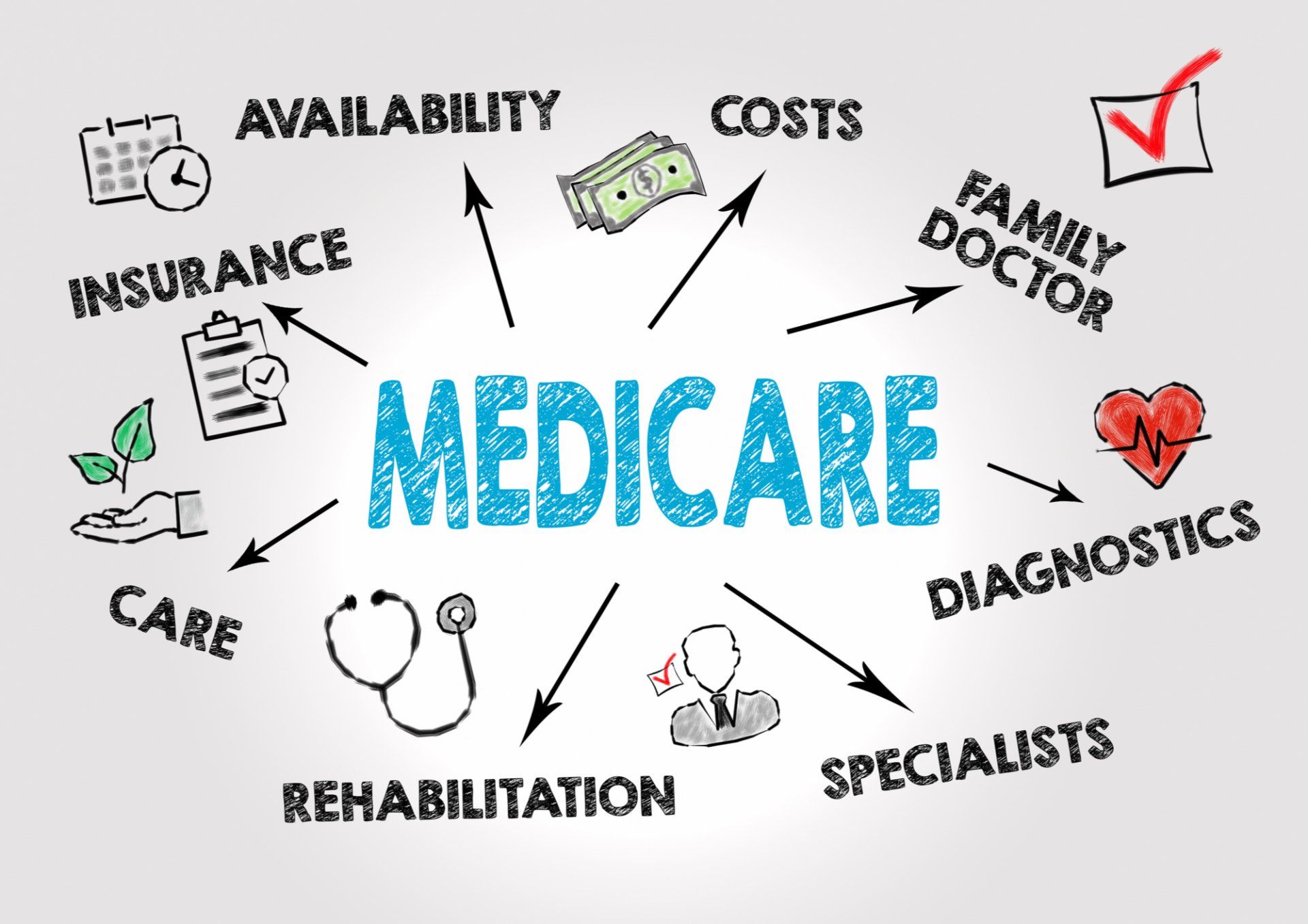Debunking "Medicare Myths"

The rising cost of healthcare is one of the biggest factors that can make or break your retirement, so it’s important to understand how your healthcare needs will be covered in retirement. While a wonderful benefit, Medicare has a lot of moving pieces that are confusing for many people and often lead to misunderstandings in how the benefits truly work. In this piece, we are going to “debunk” some of the most common “Medicare Myths” to help you in understanding your retiree healthcare benefits.
Myth #1: Everyone is eligible for Medicare.
It is true that most seniors in the US are eligible for Medicare, however, according to Health and Human Services, Medicare is available for people age 65 and older, younger people with disabilities and people with End Stage Renal Disease (permanent kidney failure requiring dialysis or transplant).
Myth #2: Medicare is free.
While Myth #1 answered the Medicare eligibility question, there is another layer. Medicare has four main parts – Part A (hospital Insurance), Part B (Medical Insurance), Part C (Medicare Advantage) and Part D (Prescription Drug Coverage). No part of Medicare is completely free, however, you may be eligible for premium-free Part A if you meet the following qualifications:
- You are age 65 or older and you or your spouse worked and paid Medicare taxes for at least 10 years
- You are receiving retirement benefits from Social Security or the Railroad Retirement Board
- You are eligible to receive Social Security or Railroad benefits but you have not yet filed for them
- You or your spouse had Medicare-covered government employment
You can verify your eligibility and your expected premium by visiting www.medicare.gov/eligibilitypremiumcalc.
Myth #3: Medicare costs the same amount for everyone.
There is a lot to unpack to properly answer this question. We already know that most Americans become eligible for premium-free Part A when they turn age 65. If you do not qualify for premium-free Part A, the cost for this portion is either $278 or $506 for 2023 depending upon how long you or your spouse worked and paid Medicare taxes.
Now, let’s talk Part B. The base premium for Part B is $164.90 for 2023. There are a couple of caveats to this, however. First, this number is subject to change every year. Additionally, you may be subject to additional Part B premium charges if your tax return from 2 years ago reflected an income of more than $97,000 for single filers or more than $194,000 for married filers. (Note: These are the income limits for 2023 premium calculation and are subject to change annually.)
Furthermore, you may also have to pay an additional amount (sometimes called Part-D IRMAA) over and above your Part D plan premium if your income is above certain limits. For more information on these calculations, visit www.medicare.gov/drug-coverage-part-d/costs-for-medicare-drug-coverage/monthly.
Myth #4: Medicare will pay for my long-term care needs.
We have alluded to the answer to this question in several of our videos, but it is truly one of the most common misconceptions about Medicare. Medicare simply does not pay for long-term care. EVER. Medicare will, however, pay for skilled care on a short-term basis for rehabilitative needs not to exceed stays of 100 days. For more information on your options for paying for your long-term care needs, check out our three-part video series on long-term care on our media page at www.soundwealth.net/media.
Myth #5: Medicare and Medicaid are the same thing.
These two terms often get used interchangeably because they sound similar and they are both government programs that help people to pay for health care. However, while the programs will occasionally work in tandem, that is where the similarities end.
Medicare is a federal program for people who are older or disabled. Medicaid is a program governed by the states for people with limited income and resources. The federal government sets the qualifying income and resource levels for Medicaid qualification, but it is up to each individual state to determine the calculation method for an individual. For this reason, Medicaid qualification will vary greatly from one state to the next.
Myth #6: I can enroll in Medicare whenever I want.
There are very specific enrollment periods with rules that surround each of them. If you fail to adhere to them, you could, potentially, end up paying financial penalties.
Most people initially qualify for Medicare when they turn age 65, however, some also become eligible via qualified disabilities or medical conditions. For either of these circumstances, you will have a 7-month Initial Enrollment Period.
The only exception to this rule is for those who work past age 65 and are qualified to delay enrollment because they have creditable coverage from their employer. These individuals may enroll via a Special Enrollment Period immediately after losing their employer coverage.
Myth #7: Medicare will cover all my healthcare expenses.
Generally speaking, “Original Medicare,” or parts A & B, cover only hospital stays, inpatient services, outpatient doctor visits and associated services. It is important to be aware, also, that there is some cost sharing required for the services that are covered under parts A & B. Medicare Parts A & B do not cover:
- Prescription drugs
- Dental, vision or hearing health care services
- Fitness
- Special benefits like coordinated care or transportation for doctor visits
This is where your Medicare Supplement Insurance or Medicare Advantage Plan and your Part D Prescription Drug Plan come into play. These additional policies will help to fill in the gaps, so to speak, for what “Original Medicare” does not provide coverage.
If you have additional questions about Medicare or planning to live your retirement with confidence, reach out to our advisory team at 941.932.4822 or schedule your no obligation consultation online at www.soundwealth.net where Sound Wealth Management is more than just our name!
This material was created for educational and informational purposes only and is not intended as ERISA, tax, legal or investment advice. If you are seeking investment advice specific to your needs, such advice services must be obtained on your own separate from this educational material.
Securities and advisory services offered through LPL Financial, a registered investment advisor, Member FINRA/SIPC.










